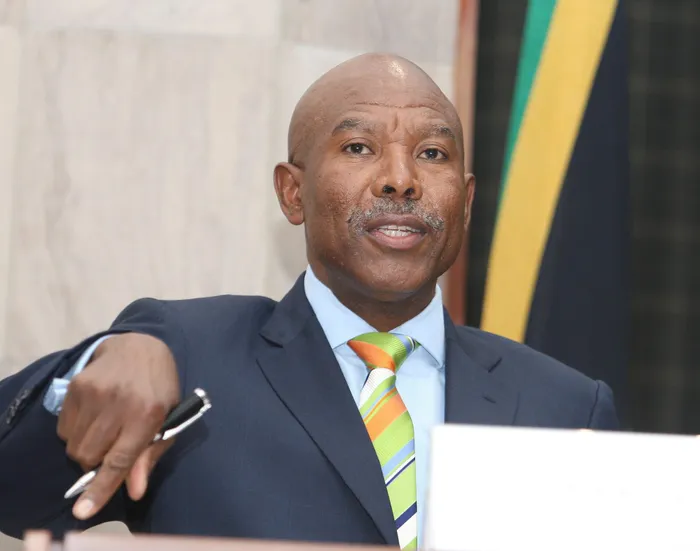Interest rates expected to hold steady in September as inflation pressures linger
CONSUMERS

South Africans hoping for more interest rate relief may need to wait a little longer. With inflation edging higher and global uncertainty in play, experts expect the SARB to keep rates steady at 7% at the MPC meeting on 18 September
Image: Simphiwe Mbokazi / Independent Newspapers.
Following a series of interest rate cuts earlier this year, economists and market watchers largely expect the South African Reserve Bank (Sarb) to hold the repo rate steady at 7% when the Monetary Policy Committee (MPC) meets on 18 September.
While there is still room for further cuts later in the year, much will depend on how inflation trends and the actions of the US Federal Reserve in the days leading up to the meeting.
Adrian Goslett, Regional Director and CEO of REMAX Southern Africa, said that the Reserve Bank’s September call will hinge on a delicate balance of factors.
“If inflation edged nearer to the SA Reserve Bank’s preference of 3%, this would keep hopes for a cut alive. A re acceleration, on the other hand, would firmly entrench a September hold. Similarly, if global markets cut their rates and if the rand holds steady, this would make later SARB cuts easier, but does not necessarily force one in September,” he said.
For debt holders, Goslett noted that the most prudent expectation is for rates to remain unchanged.
“If inflation and the rand behave, the next 25 basis point cut is more likely at a subsequent meeting such as November rather than next month,” he added.
Turning to the property market, Goslett pointed out that affordability remains constrained despite the recent reductions in the prime lending rate.
“Although there has been some easing, rates still sit well above pre pandemic levels, continuing to limit buyer affordability. Despite this, the REMAX network has managed to defy the trend, demonstrating strong sales growth, rapid sale turnover, and particularly heated activity in coastal and high demand provinces like the Western Cape,” Goslett said.
Goslett added that future activity will hinge on further easing.
“Meaningful gains in broader housing activity are likely dependent on further rate reductions or a significant improvement in economic conditions. The early signs of easing interest rates have injected some buoyancy into the property market. If rate cuts continue, they could help revive broader transaction activity,” he added.
While he remains optimistic about eventual cuts, Goslett conceded that September’s decision will most likely leave rates unchanged at 7%.
“With affordability still constrained but signs of resilience evident in the housing market, the next decisive shift may well come later in the year. Until then, the property sector continues to adapt, demonstrating both strength and opportunity in an uncertain rate environment,” he said.
Debt Rescue echoed the view that the upcoming decision comes at a difficult moment.
“The Reserve Bank’s latest interest rate decision is going to come at a time when inflation has begun edging upward, particularly driven by food prices, electricity, and other municipal tariffs. While inflation remains within the Bank’s target range of 3 to 6 percent, this rising trend makes it unlikely that we will see any significant further cuts this year,” the organisation's CEO Neil Roets said.
Some economists believe there may still be room for a small reduction later in 2025 if global conditions allow, but for now the more realistic expectation is for rates to remain steady through year end.
For households, the effect is sobering.
Debt Rescue stressed that the relief from minor rate cuts is quickly overshadowed by rising living costs.
“We see daily how families are forced to stretch their income to breaking point, with even the smallest rise in costs leaving them vulnerable. A quarter point cut may be welcome in principle, but it is negligible when measured against the real financial pressures that households face. While monetary policy stability is critical, the reality is that consumers remain under extraordinary pressure, and this strain continues to be the most pressing concern for millions of South Africans,” Roets further said.
Benay Sager, Executive Head of DebtBusters said that there has been lots of movement and lots of conversation about inflation dropping, with the goal being lower inflation over the long term and subsequently, lower interest rates, hopefully, in the short term.
Sager said, "Given some of the CPI movements, as well as the pending Eskom electricity increase among other things, we think that the interest rates will be held steady at the end of the month. There have been a number of recent rate cuts, which are always welcome for consumers, but for the above reasons, we are expecting the next couple of cycles to stay the same.
BUSINESS REPORT